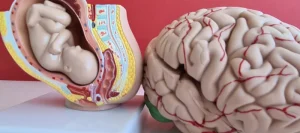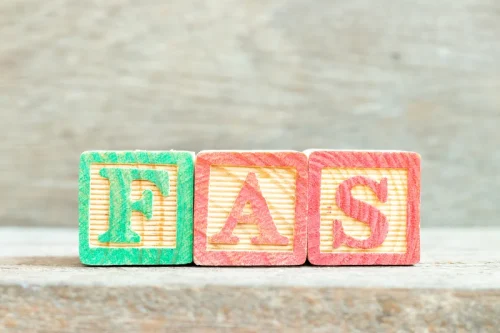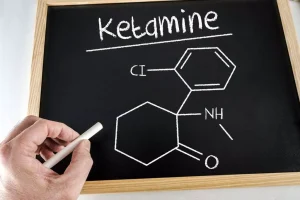
Initiating a meditation practice can seem intimidating, particularly for those who are new to it or find it difficult to focus and stay still. Patience and consistency are crucial, as the advantages of meditation often become more apparent over time. Beginning a meditation practice can be as simple as dedicating a few minutes each day to quiet reflection and deep breathing. This practice can act as a grounding technique, helping to center thoughts and emotions, particularly during moments of temptation or stress. For those seeking expert support, listening to recorded guided meditations or attending meditation classes can be incredibly beneficial. While all forms of meditation focus on being mindful, mindfulness meditation reinforces building an awareness of the current situation by examining thoughts, feelings, and experiences in a detached and non-judgmental way.
Tips for a Helpful Meditation Experience
This type of meditation helps you to achieve clarity and stillness as it calms the mind, reduces stress, and provides a deeper relaxation. It is important to find a mantra that you are comfortable with and that allows you to focus. Psychological plus neurological evidence supporting meditation for better addiction outcomes is compelling and expanding. Most importantly, committing to tools that cultivate steadiness of body and mind marijuana addiction extends benefits to all wellness dimensions – not just ending addiction but enabling flourishing for life. Studies show mindfulness practices calm areas like the amygdala and literally alter pathways to reduce reactivity and desires over time.

Addiction Treatment

Substance use disorders (SUDs) are a pervasive public health problem with deleterious consequences for individuals, families, and society. Furthermore, SUD intervention is complicated by the continuous possibility of relapse. Despite decades of research, SUD relapse rates remain high, underscoring the need for more effective treatments. Scientific findings indicate that SUDs are driven by dysregulation of neural processes underlying reward learning and executive functioning. Emerging evidence suggests that mindfulness training can target these neurocognitive mechanisms to produce significant therapeutic effects on SUDs and prevent relapse. The purpose of this manuscript is to review the cognitive, affective, and neural mechanisms underlying the effects of mindfulness-based interventions (MBIs) on SUDs.

Overdose Deaths Increased During COVID-19 Pandemic
Recovering addicts will likely be tested with many issues, such as stress, anger, anxiety, depression, insomnia, physical pain, and making difficult decisions about their sobriety. Meditation can effectively help sufferers overcome such self-destructing impulses by training the brain to objectively observe them come and go rather https://ecosoberhouse.com/ than try and suppress or ignore them. One symptom for people suffering from addiction is an overwhelming urge to satisfy a craving when it strikes. If you are still determining which type of meditation is right for you, consider trying a few different types and see which ones feel most comfortable and beneficial. We are all different and may receive different benefits from different forms of meditation. Daniel Martin is a digital marketing professional with years of experience in the industry.
Types of Meditation for Addiction Recovery
- Many find it helpful to use guided meditation apps or attend meditation classes to stay motivated and learn new techniques.
- Addiction is a chronic disease that affects the brain, leading to compulsive behavior despite harmful consequences.
- Despite decades of research, SUD relapse rates remain high, underscoring the need for more effective treatments.
This heightened awareness is invaluable, enabling individuals to recognize triggers and patterns of addictive behavior, thereby fostering better self-control and decision-making. In guided meditation, you will work with a trained meditation or mental health professional. Addiction can stem from several underlying issues, including trauma and abuse, peer pressure, mental illness, stress, a family history of addiction, and exposure to substances from an early age. Understanding how these factors correlate with substance abuse and addiction can help reduce a person’s risk of becoming addicted. The expertly-crafted guided meditations help you learn and master new techniques, so you’re better equipped to handle any challenges you face on your road to recovery. Just listen to the expert’s voice and do as they instruct-it couldn’t be simpler.
Addiction is a chronic disease that affects the brain, leading to compulsive behavior despite harmful consequences. It often starts with the pursuit of pleasure and relief but eventually becomes a vicious cycle that is difficult to break. The science behind addiction and its psychological impact is crucial in understanding how meditation can help.
Medical Disclaimer
It’s also essential to recognize that meditation is not a universal remedy; it may work differently for each individual. Personalizing meditation practices to suit individual preferences and comfort levels is key. This might involve experimenting with various meditation techniques, such as guided imagery or mindfulness, to discover the most effective approach. While the benefits of meditation in the context of addiction recovery are significant, it’s equally important to consider potential challenges.

Other Proven Addiction Therapy Methods
- If you live in Cincinnati, searching for Cincinnati drug rehab can connect you with localized care providing training on these mindfulness tools.
- Our individualized treatment plan, programs, and therapies may be a perfect match for you or your loved one.
- Meditation apps are the perfect tool to teach beginners the basics of how to breathe properly, approach your wandering mind, and manage feeling restless, taking the mental legwork out of the practice and making the process more interesting.
- Beyond helping with reducing stress, meditation has also been shown to help boost a person’s mood.
- Transcendental meditation allows you to transcend above their current state by repeating a unique phrase or mantra.
- Meditation focused on staying sober can help lessen the destructive effects of SUDs.
If you prefer to search on your own for a facility, you can use this tool. Meditation techniques can be implemented in any type of addiction treatment program. Some of these treatments include inpatient rehab, outpatient addiction treatment programs, and continued aftercare treatment. Some common pieces of advice that people in addiction meditation kundalini recovery receive are to stop judging themselves and others, to listen to their bodies, and to implement some structure and stability into their lives. While meditation cannot replace addiction treatment, it can strengthen a person’s ability to stay sober.




